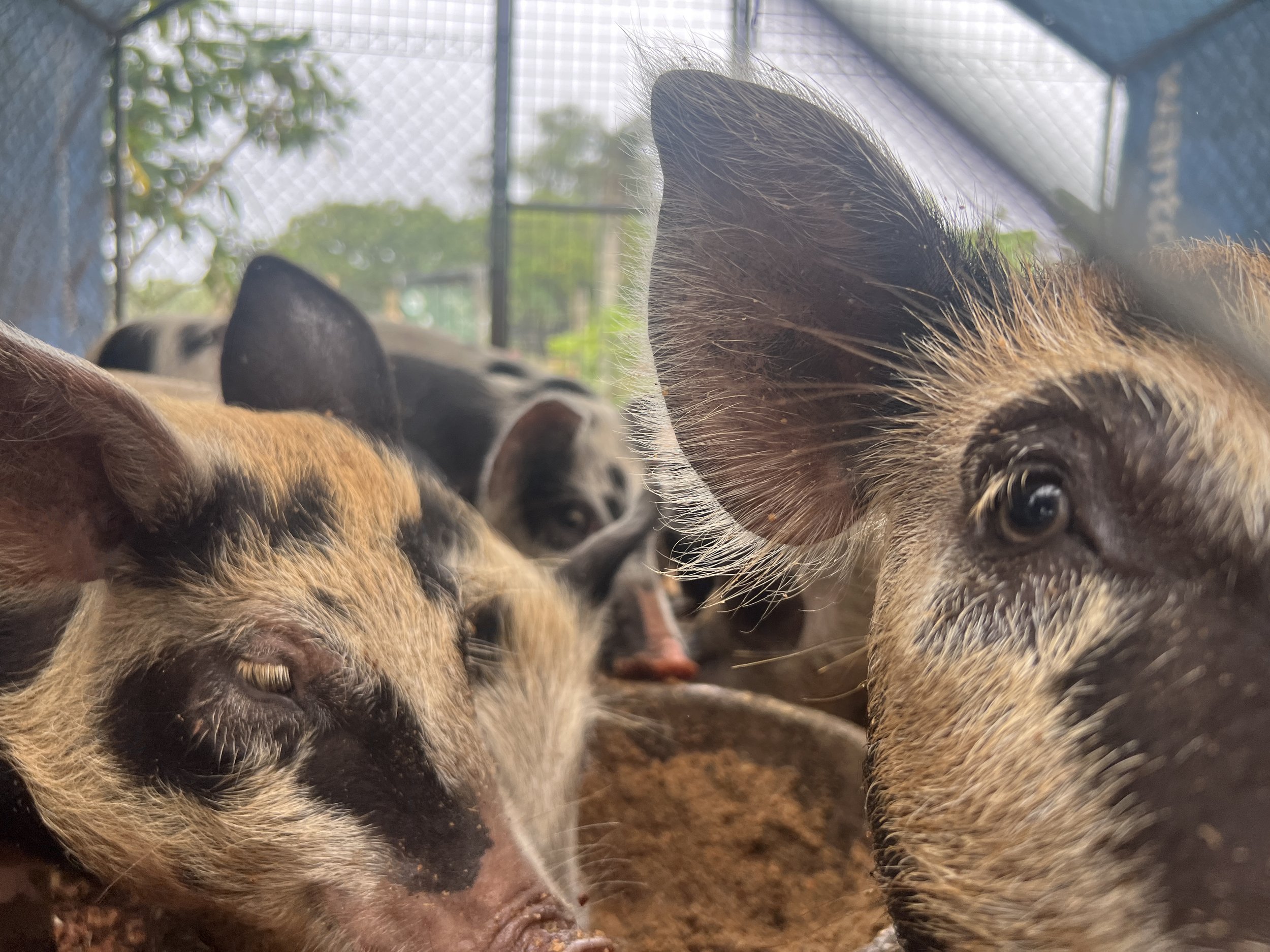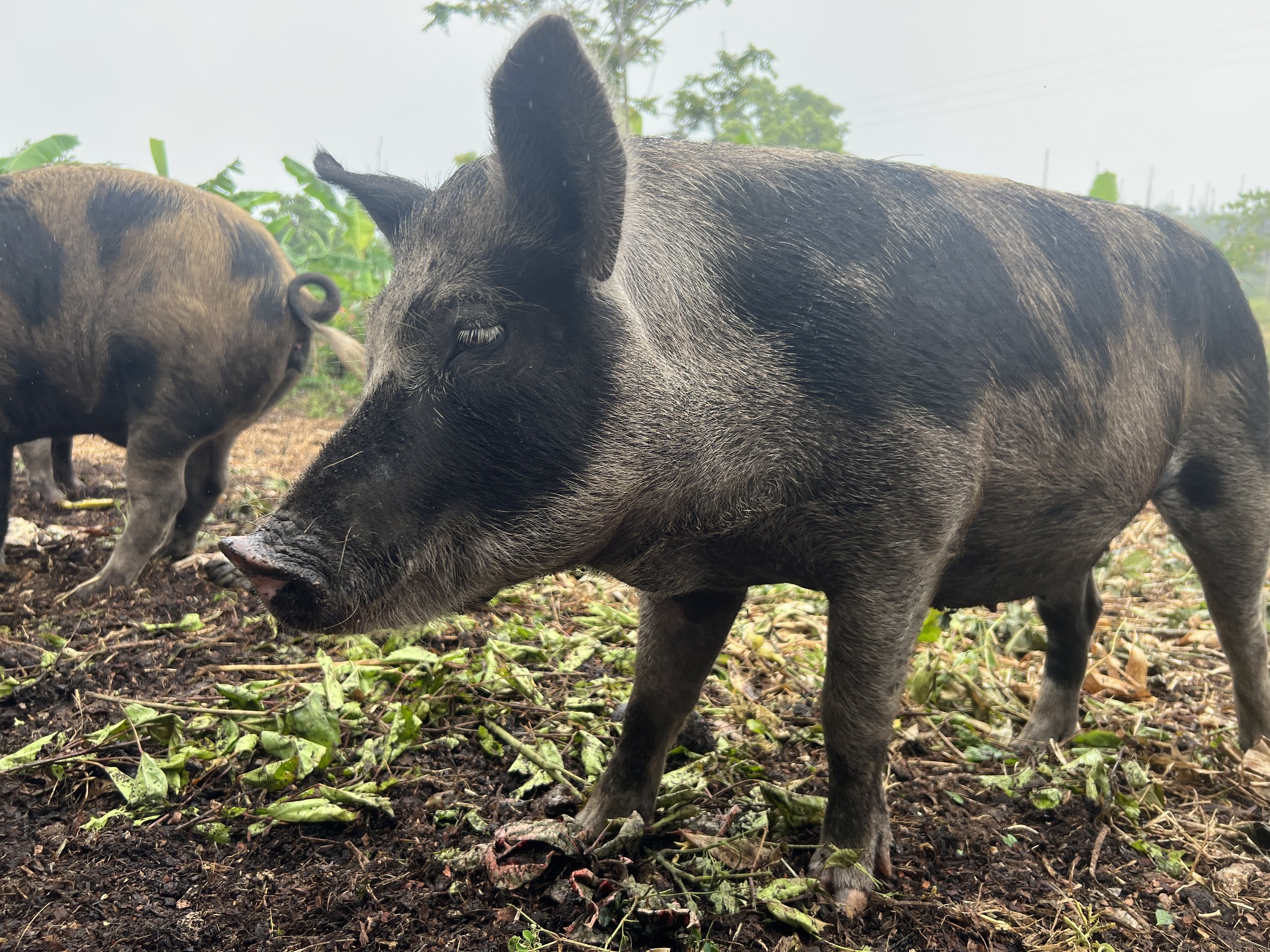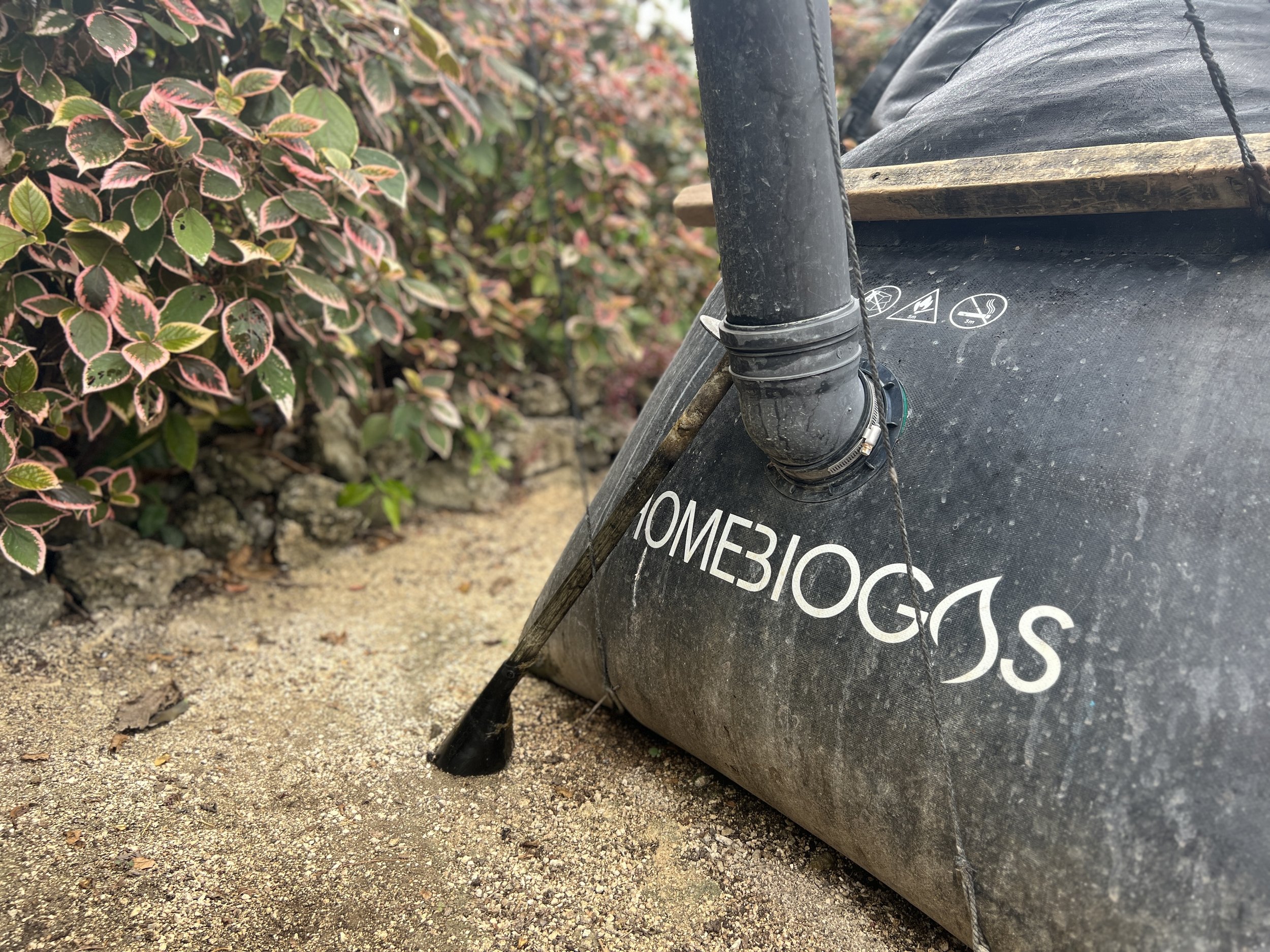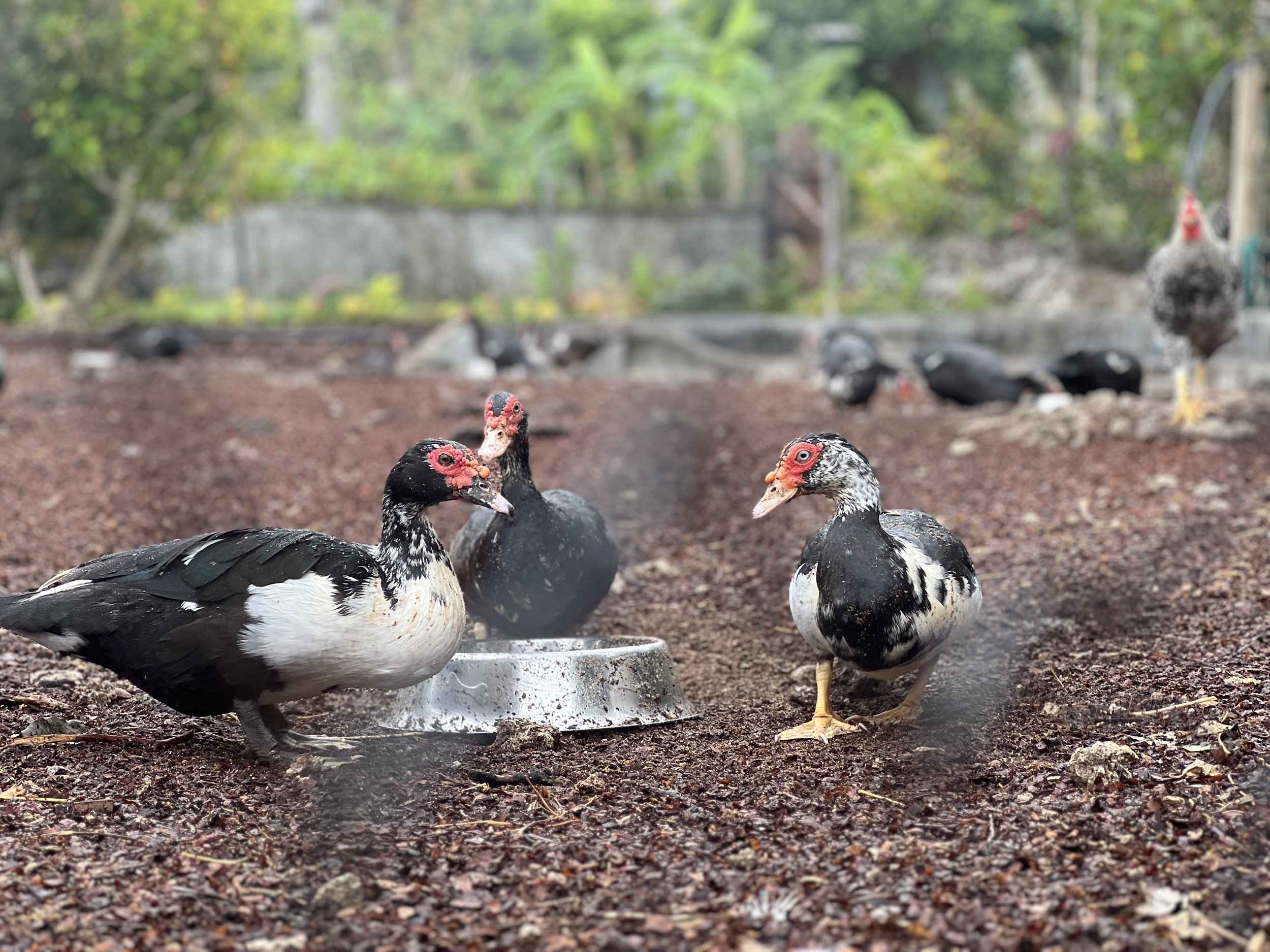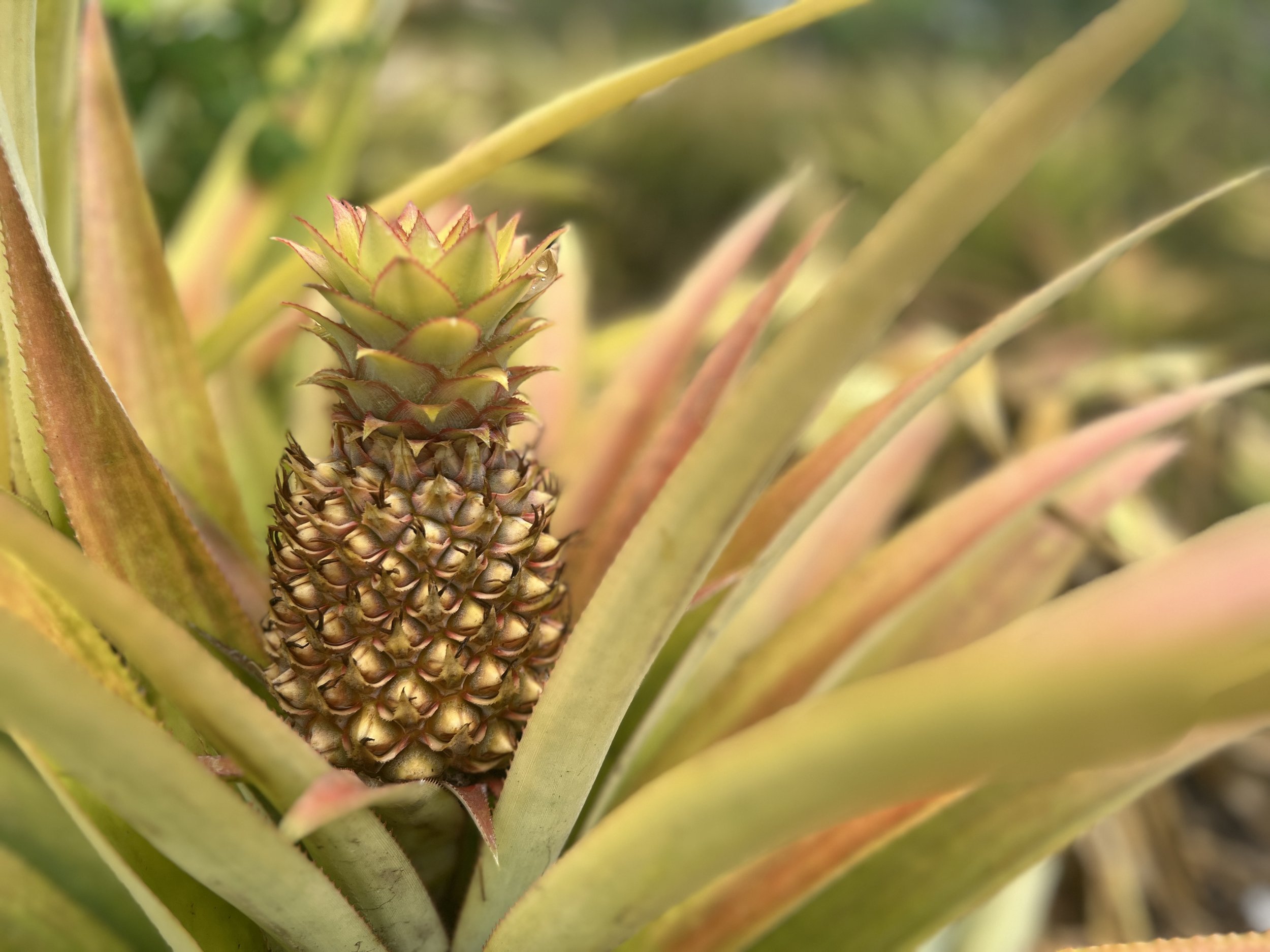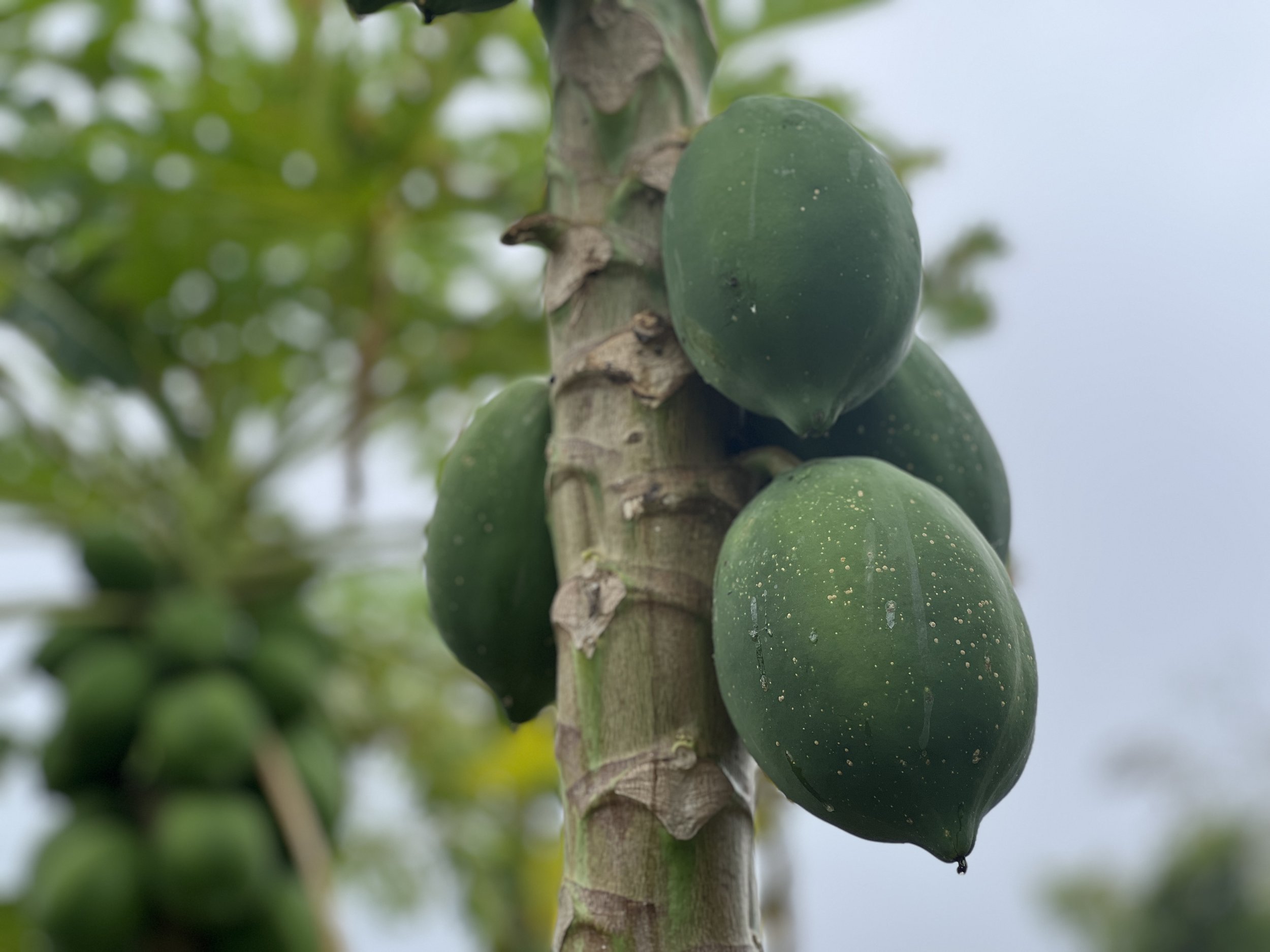Nakatumble: A Sustainable Paradise in Vanuatu
By Dr Jane Barker
Nakatumble, an eco resort nestled on the picturesque coastline of Efate island in Vanuatu, is a true tropical paradise where lush green gardens meet the sparkling blue waters of the coral sea. It's a destination where every aspect, from beautifully appointed rooms to fresh gourmet cuisine, seems effortlessly enchanting. However, the real secret lies in the resort's commitment to sustainability, embodied by unexpected heroes: pigs.
We sat down with resort owner Romina to get an insight into the sustainable practices of this unique eco holiday destination.
The Significance of Sustainability
In a world facing the adverse effects of climate change, Vanuatu is no exception. The increasing vulnerability to cyclones with destructive winds and torrential rain has made sustainability a necessity. Nakatumble's owners, Bill and Romina, who have experienced their share of cyclones, knew that their dream needed to be both environmentally and economically sustainable.
They aimed to reduce dependence on external sources for power, food and cooking fuel while at the same time supporting the local economy by sourcing building materials within Vanuatu. Nakatumble's mission is not just to preserve the land's integrity, but to rejuvenate and enhance it.
When you live in Vanuatu, where there is a scarcity of resources, you find a solution to everything. When we started here there was no rubbish collection from the council - you had to organise your own contractor. When you see the waste and have to deal with it yourself, you start to see things differently. Can I use it again? Repurpose it? Is it useful to someone else?
For example, we buy dishwashing liquid and laundry powder in 20 litre containers. We reuse the laundry powder bucket. The plastic bottle of the dishwashing liquid we use to make fertiliser with a mixture of manure and garden waste, or its washed and given to local communities that don’t have running water, so that they can transport water. Why waste it when you can use it?
The garden waste leaf litter goes to the pigs and they eat it or make soil by trampling it. Why burn it? The manure of the pigs makes cooking gas. Why waste it? It’s not just core to our business model, it’s core to our existence. Sustainability and independence are linked together. The first world is full of resources - there is so much stuff, everything is easy to get. Here many don’t have access to resources, we work with less, we make from what we have around us. It’s not just a passion for sustainability, it’s a necessity.
Positive Impact of Pigs
Pigs have been central to Vanuatu's traditional economy for centuries. In this island nation, pig ownership and ceremonies involving pigs signify status, wealth and informal power, still holding cultural significance today. Nakatumble's commitment to pig husbandry and sales helps maintain positive relationships with kastom landholders.
We had the pleasure of visiting the charming piglets and their long-haired, Belgian-traditional pig hybrid parents in the gardens. Pigs at Nakatumble are more than just a food source - they symbolise a connection to the island's rich heritage and its cultural traditions.
Since the dawn of time, pigs have been Vanuatu’s country motif, its traditional currency. Having pigs makes us more embedded and accepted in the local community as people think they have pigs so they are farmers like us. People visit and also see how a few improvements can elevate the care of the pigs.
The water is clean and abundant so that the pigs don’t get worms. We feed the pigs on a schedule at 7am, 11:30am and 3:30pm. They are feed copra meal (waste product from making coconut oil) and assorted leaves from the gardens. No meat products. All the feed comes from Vanuatu and is not imported. So its education, it’s a sign that we respect the traditional culture of having pigs.
Enriching the Soil
When Bill and Romina first began gardening on their shallow, coral-based soil, they faced challenges in growing the variety and quality of fruits and vegetables required for their resort. Soil improvement, they learned, requires more than just fertiliser - it needs fibrous plant materials and a supportive microbiome. This is where the pigs play a vital role.
Fresh sawdust, a byproduct of a local timber mill that would otherwise contribute to global warming, lines the pig pens. All the garden plants are pig-friendly, and the pigs are fed copious amounts of vegetation three times a day, alongside copra from local coconut oil production. The resulting mixture of manure, leaves and sawdust is used for soil enrichment and composting, as well as biogas production for cooking.
If we don’t take the sawdust it gets burnt which contributes to global warming but also creates smoke pollution, which is both dangerous and wasteful. Why burn it when you can use it? We have no soil at Nakatumble, perhaps 1cm on top of the bedrock, and to grow anything we need soil. Due to the coastal weather, the soil depletes a lot and very quickly so it needs to be replaced.
The Wonders of Biogas
Biogas, generated through the breakdown of organic materials by anaerobic bacteria, is a clean and carbon-neutral cooking gas. This low-cost technology encourages a circular economy at Nakatumble and contributes to clean energy. The remaining nutrients in the water are used to fertilise the garden, and the fibrous byproduct can be added to compost. All in all, it's a sustainable way to minimise waste while enhancing food production.
Biogas can solve all the energy needs of everyone in the world, we all produce excrement. How amazing that you put excrement into the homebiogas then it makes three hours of cooking gas a day and 40 litres of bacteria-free rich fertiliser, and because the excrement is not going in the ground it doesn’t contaminate the ground water.
Instead of the gas going to cooking it can also go to a generator and produce power. It seems insane to us, that sewerage is not utilised. If we knew about it before we built Nakatumble we could have done things differently.
Farm-to-Table Dining
The nutrient-rich soil at Nakatumble produces a bountiful array of salads, vegetables and fruits that grace the resort's tables. Guests can explore the permaculture-inspired gardens that feature a wide variety of vegetables, from cabbages to plump tomatoes, aubergines and courgettes, alongside an assortment of herbs.
The resort's pineapple plants, passionfruit vines and bananas are thriving, while chickens and ducks contribute eggs and fertilise the gardens. This commitment to minimising waste extends to using food scraps as animal feed and compost, ensuring a waste-free environment and fresh, delectable meals for guests, cooked to perfection by Romina and her team.
Green Energy and Water
Nakutamble harnesses the power of the tropical sun with 60 solar panels, storing energy in multiple batteries for around-the-clock use, even on cloudy days. Solar water heaters ensure a steady supply of hot water for showers. Rainwater, collected from the roofs, is filtered for drinking purposes.
Gourmet Cuisine
Romina's gourmet dishes are inspired by freshly harvested garden produce and locally caught fish. We were treated to unique culinary experiences, from mahi-mahi to sashimi caught by local fisherman Cedrick earlier that day, all served with a side of beautiful smiles. Nakatumble's commitment to serving fresh, delicious and sustainably sourced food creates a unique and joyful dining experience.
I have been told that our food is like Nigella Lawson and Yotam Ottolenghi had a baby and was raised by a grandmother (nonna) in Italy. I cook to the weather, I can ‘feel’ what people want today, I don’t really do a menu as there is nothing nicer than the surprise, not needing the think about it and its always just exactly what people wanted at that mealtime.
I want people to feel cared for and nurtured, that the food gives you power, health vitality yet is also tasty. I love that children who are a bit picky then enjoy our pumpkin tempura and eggplant hoisin as these things are made with our homegrown pumpkin and eggplant. Everything is made from scratch, from the hoisin to the dipping sauce.
I love to cook, I love that people love my cooking. I really love it when children come and say “you are the best cook in the world”. I love that the children (and adults) come into the kitchen and say “what’s for today?” and be part of the journey. I love that people tell me their personal favourites, take my recipes home and then recreate and send me the photos and videos. I feel that food is uniting, that we can use local ingredients but taste and share the world.
Supporting Local and Sustainable Building Materials
The name Nakatamble itself comes from a local fruit tree with exquisite grains, which are showcased in the resort's timber structures. Offcuts are transformed into attractive furnishings, preserving pristine rainforest timber. The resort incorporates local weaving in its ceilings and coral from the beach into its walls, decks and swimming pool. This choice not only enhances the resort's natural beauty but also supports the local economy.
We all need to be conscious of our choices, and I think when you are in the developed world there is so much choice that perhaps you don’t really ‘think’. Originally we were going to go with travertine floors, then we realised that all of that flooring would need to be shipped to Vanuatu. Apart from the expense, we also saw how unnecessarily wasteful it was. We then achieved a similar look and feel by using cement and leaving the sun to do its work and ‘bleach it’ and it looks like travertine.
We then had to find a tile solution for the bathrooms, kitchen and pool. We love a Morroccan look but when we brought the samples they ‘felt wrong’. We looked at many samples from overseas but nothing was ‘right’. We then found a sample of sliced coral and it was like ‘ok’ this is it! Its unique, not mass produced, produced onsite from dead coral rocks that are on our shoreline. We use local labour to slice it and then stick it on the walls. And we think the effect is stunning.
There are many species of timber here but a lot are old growth forests and hard to grow back again. Nakatumble is a prolific fruit tree - it feeds our indigenous bird species and we eat its fruit, but like all fruit trees they have a life end. Old growth trees live forever. Hence cutting a mature Nakatumble tree, that’s basically at the end of its life, is more sustainable. The trees that we harvest have lived their lives, their fruit eaten by birds and bats, and have been spread about to create the next generation. At Nakatumble we have planted 30 nakatumble trees and will plant more over time.
The nakatumble tree is traditionally used to make canoes as it has a natural resin and is not so heavy, which gives it buoyancy. To date the timber has survived two category 5 and 1 category 4 cyclone, so we know it’s strong. We sourced the trees from Ni Vanuatu who worked with the kastom land owners, after the mill process they were ‘dried’ in our roof, then once ready we used a local joinery to rip and plane the timber. All the joinery, from the doors to the drawers to the furniture, was made onsite at Nakatumble, those that were skilled shared their expertise with others. All the offcuts were used to make the draw handles, chopping boards, tables, and so on. It’s a beautiful timber so why waste it?
Nakatumble is a testament to the uniqueness of Vanuatu, accentuated by the dedication of its caring hosts, Bill and Romina, and their friendly and hardworking Ni Vanuatu staff, who infuse the resort with natural joy and hospitality, ensuring that guests feel nurtured and welcomed. This eco-resort is not just a destination but a transformative experience that reflects the beauty and sustainability of Vanuatu.
The cultural significance of pigs
Pigs hold significant cultural importance in Vanuatu, and they play a central role in various aspects of the island nation's culture and traditions. Here are five facts about the cultural significance of pigs in Vanuatu:
Status and Wealth Symbol: Pigs are highly valued in Vanuatu and are often seen as a symbol of wealth and social status. Owning a large number of pigs is a sign of prosperity, and the more pigs a person has, the higher their social standing within the community.
Bride Price: In traditional Vanuatu culture, pigs are a common form of bride price. When a man wishes to marry a woman, he is expected to offer a certain number of pigs to the bride's family as a symbol of his commitment and ability to provide for her.
Ceremonial and Ritual Use: Pigs are used in various ceremonies and rituals in Vanuatu. The meat is often shared among the community as part of the festivities. These ceremonies can include traditional dances, feasts and other cultural celebrations.
Compensation and Conflict Resolution: Pigs are used as a form of compensation in Vanuatu's traditional justice system. When disputes or conflicts arise between individuals or groups, pigs may be offered as a means of resolving the issue and restoring harmony. This practice is part of the kastom (customary) justice system.
Spiritual Significance: Pigs also hold spiritual significance in Vanuatu's indigenous belief systems. They are associated with certain traditional religious practices and are considered sacred animals by some communities.
These cultural practices and beliefs surrounding pigs in Vanuatu highlight the deep connection between the people of Vanuatu and these animals. Pigs are not just a source of food but also play a central role in social, economic and spiritual aspects of the culture.
Kastom is a pidgin word (Bislama/English) used to refer to traditional culture, including religion, economics, art and magic in Melanesia.


